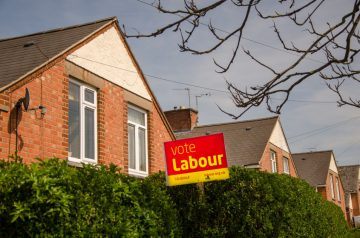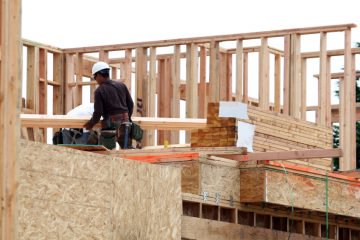Theresa May has pledged an additional £2 billion to build affordable housing, in a bid to “get Government back in the business of building houses”.
Speaking at the Conservative Party Conference yesterday, the Prime Minister said that councils and housing associations will be able to bid for the funds, and some homes will be built for social rent below market levels.
She said that the budget for affordable housing is now almost £9 billion, which will help to build a new generation of council houses.
May vowed to take “personal charge” of the issue, and called for housebuilders to do their bit by building on land made available, adding: “It won’t be quick or easy, but I will make it my mission to solve this problem and will take personal charge of the response by reigniting homeownership in Britain once again.”
Commenting on the announcement, the Parliamentary Affairs Manager at the Royal Institution of Chartered Surveyors (RICS), Lewis Johnston, says: “It is over 65 years since a Conservative conference committed the party to delivering 300,000 homes a year. With today’s housing challenge no less urgent, the Prime Minister’s plan to unleash the first major Government housebuilding programme in decades indicates the kind of ambition we need to tackle the housing crisis.

May Pledges Additional £2bn for Affordable Housing
“In 1968, councils accounted for 40% of all housebuilding and today’s plan is an acknowledgement that councils are an important part of the solution to the supply crisis, although it will be interesting to see how this announcement works with the recent expansion of Right to Buy.”
He adds: “The success of the plan depends on the Government’s willingness to tackle the other obstacles to building. Alongside the already announced measures, we need bold reforms of the planning system and a deep-seated resolve to unlock the potential of modern methods of construction.”
The CEO of the National Landlords Association (NLA), Richard Lambert, also comments: “The majority of landlords would agree that more social housing should be built, and it’s about time that the Prime Minister set aside a significant pot of money to do so.
“Government, society and indeed taxpayers will get better long-term value from investing in building than in subsidising rents.”
He continues: “Today’s announcement should not only provide more available housing for those most in need at rents they can afford, it should also relieve the pressure on the private sector, and choke off the breeding-ground for the minority of rogues and criminals who get away with providing substandard housing and neglecting their tenants”.
Meanwhile, Dan Wilson Craw, the Director of tenant lobby group Generation Rent, has also responded: “Under Theresa May, the Conservatives have made a welcome shift towards more state support for affordable housing and private renters, including today’s pledge on social rents. But this trickle of incremental announcements does little to address the urgent need that renters have for lower rents and stronger protections.
“Compared with the £10 billion being ploughed into the wasteful Help to Buy scheme, only £2 billion for social housing suggests the Government is still focusing too much on the symptoms of the housing crisis rather than its causes.
“Investment in social housing would mean permanent homes for the 75,000 families in temporary accommodation and lower market rents, whereas Help to Buy will get a small minority of renters into homeownership, while pushing up prices for the rest of us.”
Lindsay Judge, the Senior Policy Analyst at the Resolution Foundation, offers her thoughts: “The commitment of an extra £2 billion for affordable and social housing is a very welcome first step towards tackling Britain’s housing crisis. With over a million people on local waiting lists for social housing, it is a timely and necessary intervention.
“We are facing a huge social housing shortage. Back in 1981, three out of every ten families rented their home from the council or a housing association. Today, that figure has halved.
“But the size of the challenge is huge. During the Macmillan years, more than 100,000 council homes were built each year. Last year, there were just 1,840 new council homes built by local authorities, with housing associations adding another 25,000 affordable homes. Today’s announcement could mean a further 5,000 homes a year. That is welcome, but it’s equally clear more action will be needed.”
She concludes: “If Theresa May wants to lead the way on facing up to our housing challenge, she will need to ensure building happens on a scale we haven’t seen for a generation, with councils backed all the way to do so. And, in the meantime, families in the private rented sector should get the greater security they deserve.”









